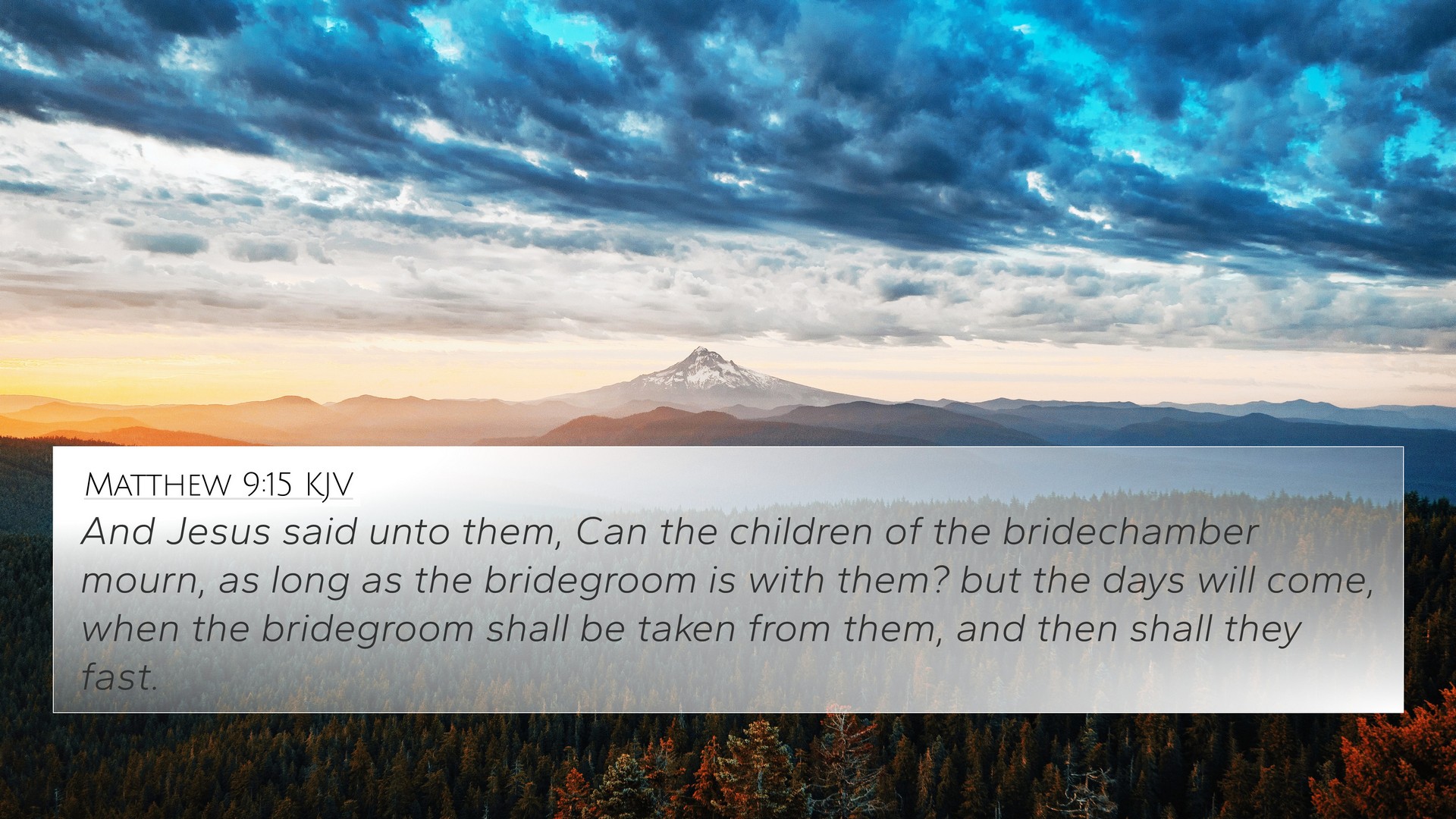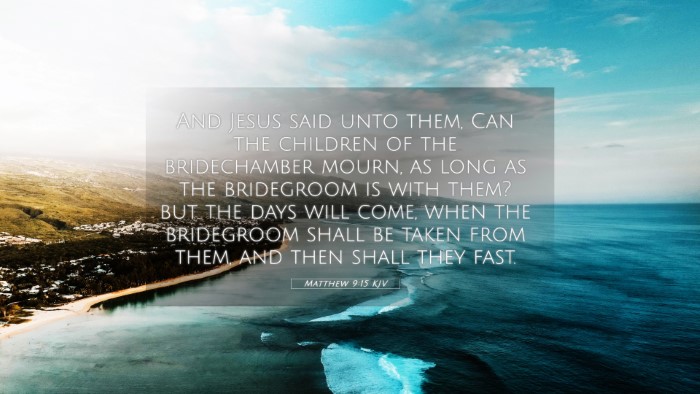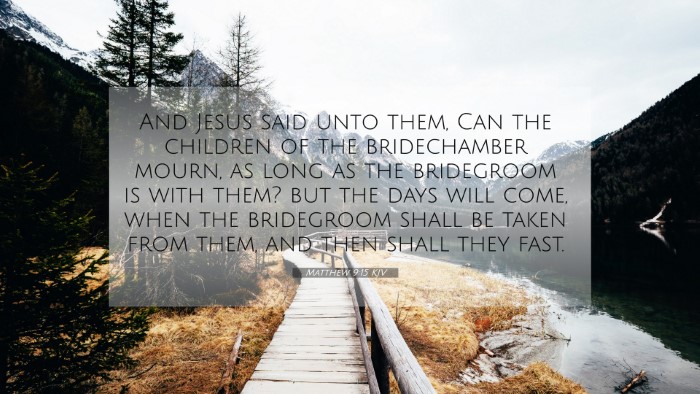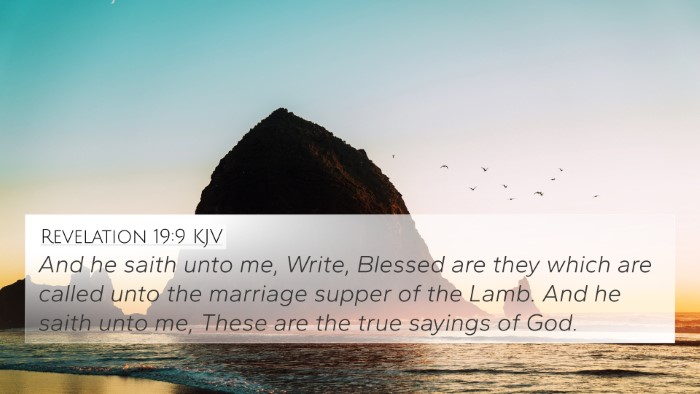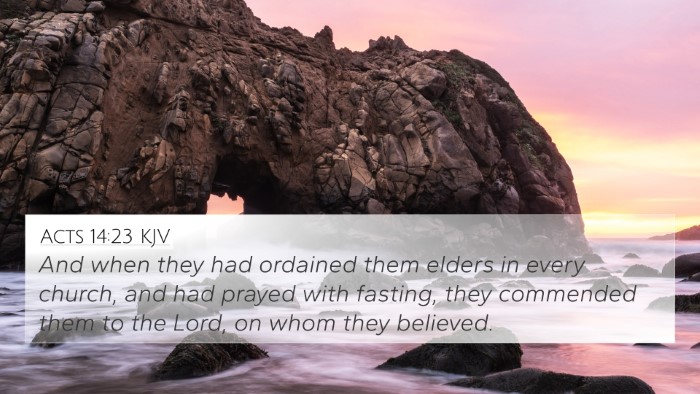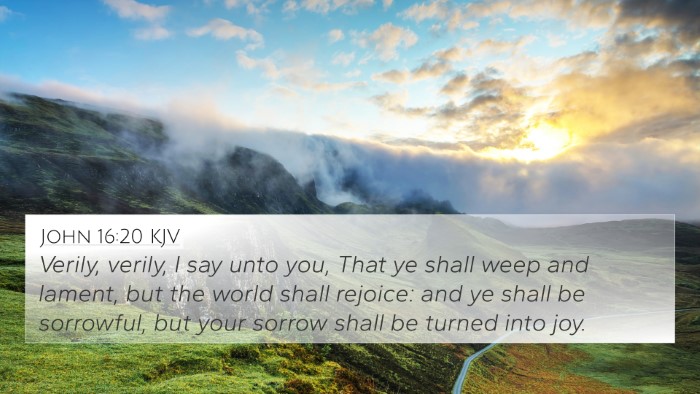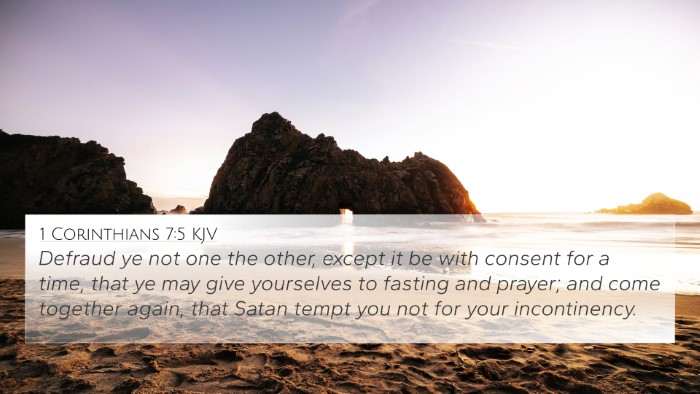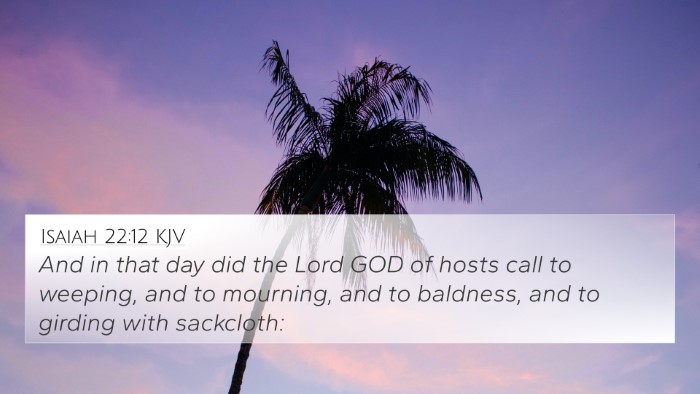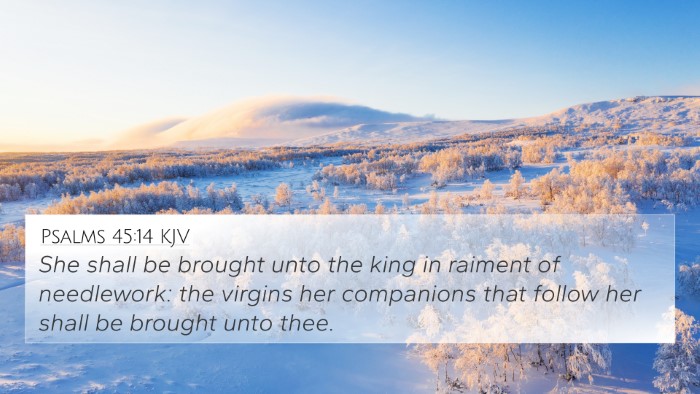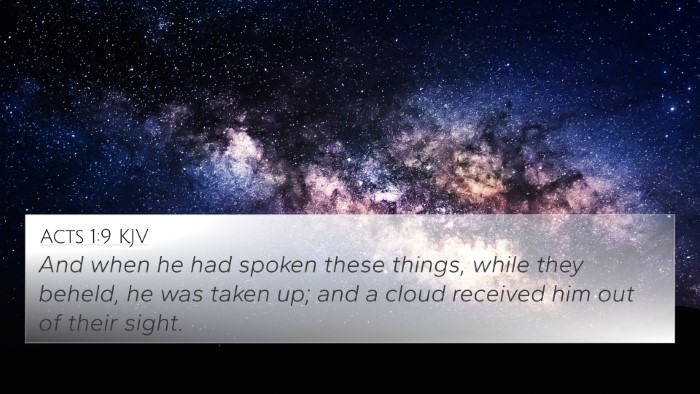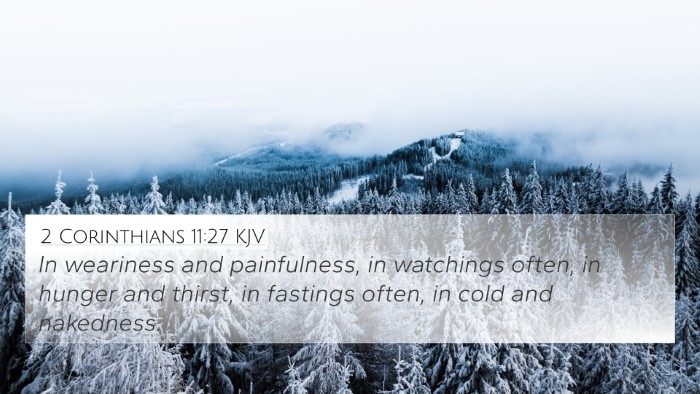Meaning and Interpretation of Matthew 9:15
Verse: “And Jesus said unto them, Can the children of the bridechamber mourn, as long as the bridegroom is with them? but the days will come, when the bridegroom shall be taken from them, and then shall they fast.”
Summary of Meaning: In this verse, Jesus speaks in response to a question regarding fasting, signifying that His presence among them is a time for joy rather than mourning. He uses the metaphor of a wedding feast, where the presence of the bridegroom (who represents Himself) brings celebration and festivity. The implication is that His departure will bring a time for believers to experience mourning and fasting.
Insights from Public Domain Commentaries
Matthew Henry
Henry explains that the joy of the disciples in the presence of Jesus exemplifies the nature of their relationship with Him. He emphasizes that they are like guests at a wedding feast, not those who partake in sorrowful fasts, highlighting that Jesus’ ministry is a time of spiritual revelation and joy. When He is taken away, however, it signals a shift towards a state of longing and preparation among His followers.
Albert Barnes
Barnes elaborates on the cultural significance of fasting during times of grief. He notes that the metaphor of the bridegroom and the wedding feast captures the essence of the joy present when Christ is with them. His comments stress that fasting is appropriate during His absence, suggesting a time of reflection and seeking God’s presence in deeper ways.
Adam Clarke
Clarke points out that the term "children of the bridechamber" refers to friends of the bridegroom. He perceives the analogy as one indicating that while Christ is with His followers, they should rejoice, but they should also prepare for a time of fasting when He is gone. This reinforces the transformative journey that his disciples will experience as they shift from being in His presence to a longing relationship after His ascension.
Bible Verses Related to Matthew 9:15
- Matthew 6:16: Teaching about fasting and its sincere practice.
- John 16:19-22: Jesus speaks of sorrow turning into joy following His resurrection.
- Luke 5:34-35: A parallel account emphasizing the joy of being with Jesus.
- Psalm 30:5: The concept of joy coming in the morning after sorrow.
- Isaiah 61:10: The joy of the Lord being a source of strength.
- Acts 1:9: The ascension of Jesus, marking the beginning of a new phase for His followers.
- Philippians 4:4: The call to rejoice, reflecting on the joy found in Christ.
- Revelation 19:7-9: The marriage of the Lamb, connecting to the bridal imagery.
- Matthew 25:1-13: The parable of the ten virgins, showcasing preparation for the bridegroom’s arrival.
Thematic Connections
The themes present in Matthew 9:15 resonate throughout scripture, encouraging believers to embrace joy in Christ's presence and to be prepared for times of spiritual fasting and reflection. The emphasis is on how believers relate to Christ during the time of His ministry and how that relationship evolves in His absence.
Cross-Referencing Insights
Utilizing tools for Bible cross-referencing allows readers to identify deep connections between different scriptures. Thematic Bible verse connections, such as those between Matthew 9:15 and other passages that discuss joy during trials, or the anticipation of Christ's return, are vital for understanding the full context of Jesus’ teachings.
Tools for Bible Cross-Referencing: A Bible concordance, a Bible cross-reference guide, and comprehensive Bible cross-reference materials can significantly enhance one's study experience, making it easier to see how Bible verses relate to each other through scriptural cross-referencing.
Conclusion
Matthew 9:15 serves as a profound reminder of the joy found in Jesus Christ and the call to prepare for times when that joy may be overshadowed by the trials of life. Understanding such passages through cross-referencing enriches one’s spiritual growth and draws clearer connections across both the Old and New Testaments.
